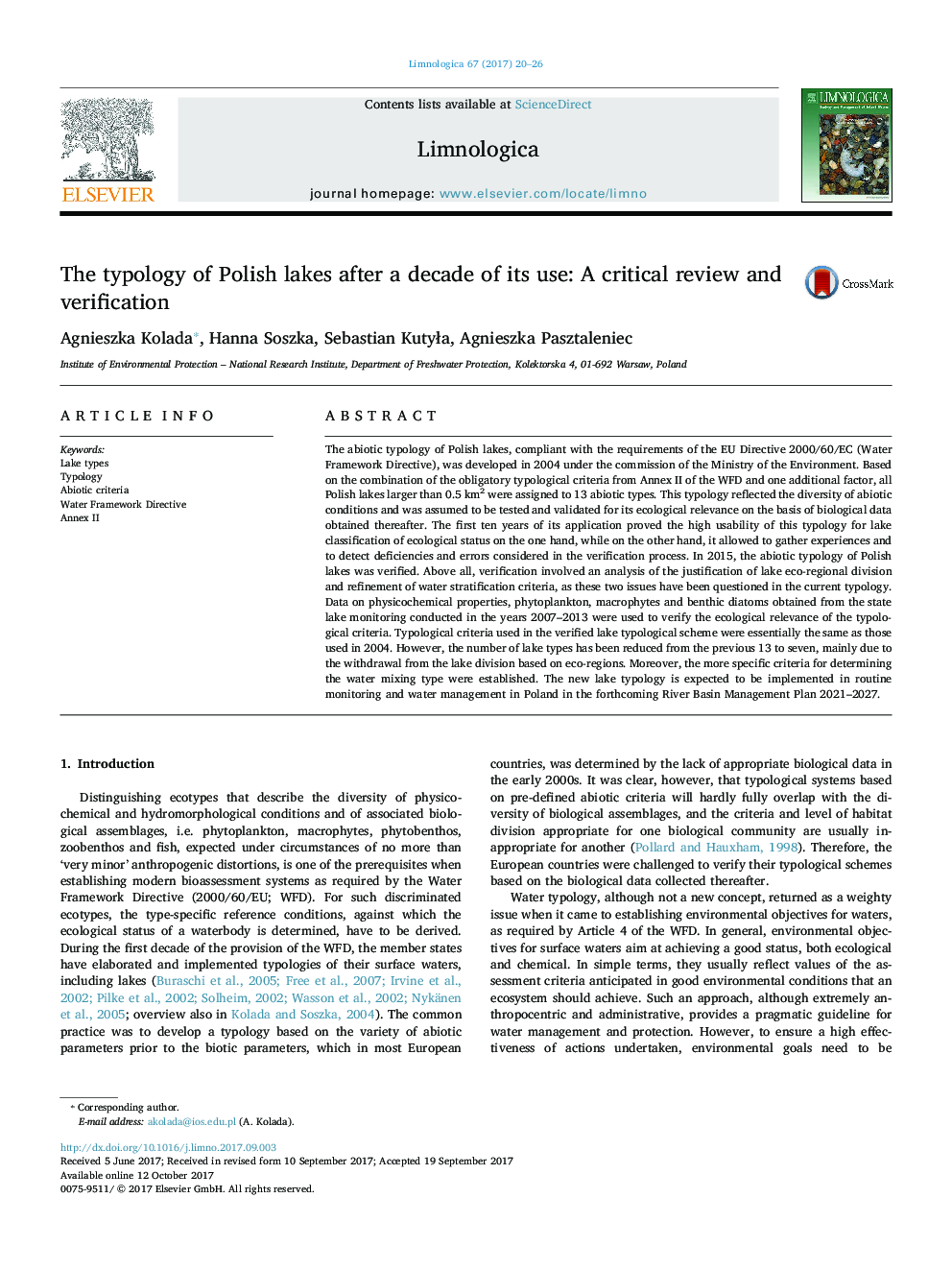| Article ID | Journal | Published Year | Pages | File Type |
|---|---|---|---|---|
| 8849435 | Limnologica - Ecology and Management of Inland Waters | 2017 | 7 Pages |
Abstract
The abiotic typology of Polish lakes, compliant with the requirements of the EU Directive 2000/60/EC (Water Framework Directive), was developed in 2004 under the commission of the Ministry of the Environment. Based on the combination of the obligatory typological criteria from Annex II of the WFD and one additional factor, all Polish lakes larger than 0.5Â km2 were assigned to 13 abiotic types. This typology reflected the diversity of abiotic conditions and was assumed to be tested and validated for its ecological relevance on the basis of biological data obtained thereafter. The first ten years of its application proved the high usability of this typology for lake classification of ecological status on the one hand, while on the other hand, it allowed to gather experiences and to detect deficiencies and errors considered in the verification process. In 2015, the abiotic typology of Polish lakes was verified. Above all, verification involved an analysis of the justification of lake eco-regional division and refinement of water stratification criteria, as these two issues have been questioned in the current typology. Data on physicochemical properties, phytoplankton, macrophytes and benthic diatoms obtained from the state lake monitoring conducted in the years 2007-2013 were used to verify the ecological relevance of the typological criteria. Typological criteria used in the verified lake typological scheme were essentially the same as those used in 2004. However, the number of lake types has been reduced from the previous 13 to seven, mainly due to the withdrawal from the lake division based on eco-regions. Moreover, the more specific criteria for determining the water mixing type were established. The new lake typology is expected to be implemented in routine monitoring and water management in Poland in the forthcoming River Basin Management Plan 2021-2027.
Keywords
Related Topics
Life Sciences
Agricultural and Biological Sciences
Aquatic Science
Authors
Agnieszka Kolada, Hanna Soszka, Sebastian KutyÅa, Agnieszka Pasztaleniec,
